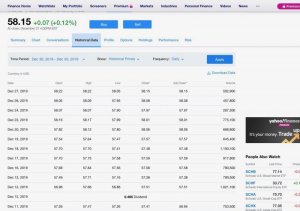mathjak107
Well-known Member
- Location
- bayside ,queens , ny
again , it is not a bonus ... they give you a dollar in shares and take back a dollar in value , unless it is interest in a bond mutual fund . it is a wash , by sec law. if it worked any other way we would just buy a fund or stock on the record date and sell it after the ex div date and never own it and get free money .My IRA posted the year end dividends today, and it was a nice year end "bonus". I think it was just about this time last year when the markets tanked and it took weeks/months to recover. I keep watching for another "correction", which appears to be quite overdue, and I wonder how long this market can keep advancing. When, not if, the next downturn arrives, I suspect it will be quite severe.
in a taxable account you never want to buy before a dividend just for that reason .. you gain nothing but get a tax bill for the dividend … you wait until it goes ex div . you get the same number of shares for the same dollars invested but no tax bill yet .
these reductions in value may not be apparent because once the fund starts trading again it gets mixed in to the days rise or fall .
but if you did not reinvest the money that days gain would be on less dollars since you started out lower in value . if you do reinvest , they simply buy you an equal value in shares but since the shares are at a reduced price you get more shares but at the same dollars invested as you had .
so the days action is on the reduced starting value or the same value if you plow the money back in .
i don't know why this is so misunderstood by so many and they think it is free money from heaven that just gets sprinkled by unicorns .
no , it is the refund of money you already had in the investment and once it is paid out the share price must reflect that difference by being lowered by the same amount .....ALWAYS!!!!!!!!!
Last edited:


